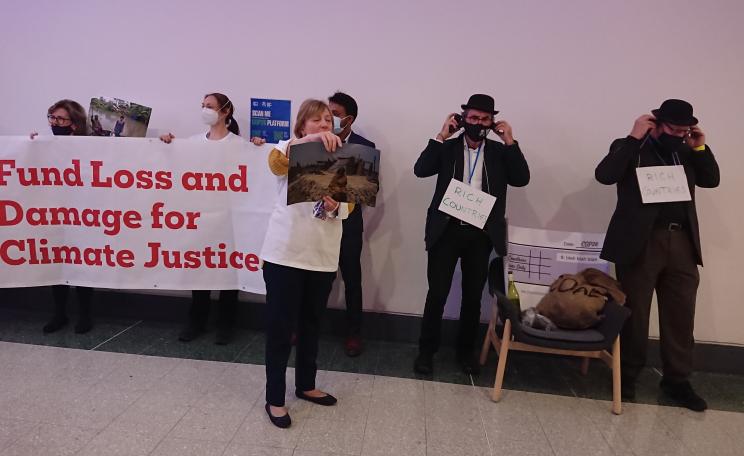In 2017 Japan subsidised fossil fuels by $1.8 billion dollars and is one of the largest coal financiers in the world.
Japan - the world's fifth largest global greenhouse gas emitter - has this week shared the climate plan which it intends to to submit to the United Nations.
But the plan is no more ambitious than the one submitted to COP21 in Paris 5 years ago - with the same top-line target to reduce emissions by 26 percent by 2030 from 2013 levels, according to analysis delivered by the World Resources Insitute (WRI).
When all the nations who signed up to the Paris Agreement submitted their Intended National Determined Contributions (INDC’s) in 2015, a study by the Potsdam Institute for Climate Impact Research (PIK) in Germany found that this was putting us on a global heat trajectory of more than three degrees Celsius above the preindustrial global average.
Failure
Without the Paris Agreement the business-as-usual trajectory was towards a cataclysmic range above six degrees Celsius. So to bring it down to three degrees was only ever a good start to changing the fate of humanity. It was never an end goal.
Signalling that more had to be done, climate leaders, such as Christiana Figueres, immediately set about campaigning for a raising of ambition to push the targets for carbon emissions reduction even further.
So far, this ambition has been lacking across the world despite the momentum shift in public opinion led by groups such as Fridays For Future and Extinction Rebellion.
Japan’s lack of ambition is sending a signal to their own people, as well as the rest of the world, that they simply are not prepared to raise their ambition to prevent a worldwide crisis that will make everyone suffer, no matter where they are located, or, how rich or poor.
Failure on establishing a robust emissions reduction transition plan flies in the face of good sense when the risks associated with business-as-usual are increasing and the cost of switching to low-carbon alternatives is both cheaper and safer in the longterm.
Pandemic
In previous years it has been typical for governments to dismiss climate policy action on the basis that it will lead to reduced economic output and a loss of jobs.
That paradigm has now changed with global innovators and technology developers demonstrating that a new path is possible and the price of renewable sources of energy outperforming high carbon polluting fossil fuels.
Helen Mountford, Vice President of the World Resources Institute (WRI) stated: “Studies show that decarbonising Japan’s economy could slash fossil fuel import costs by 70 percent and create more than 60,000 jobs in its domestic renewable energy sector.
"It is in Japan’s own interest to revisit its climate commitment, in order to take full advantage of the job creation opportunities of the transition and to deliver long-lasting, sustainable and resilient economic growth as the nation rebounds from the coronavirus. If not, Japan risks lagging behind many other countries in the global transition to a low-carbon economy.”
In 2017 Japan subsidised fossil fuels by $1.8 billion dollars and is one of the largest coal financiers in the world. If the level of commitment to change in 2020 is the same as it was in 2015, then we can assume that fossil fuel subsidies are not changing either.
The Japanese government understands the threat of climate change and are still refusing to act responsibly. The current global pandemic crisis is not an opportunity to turn away from climate action but presents the necessity of shaping the future beyond it.
This Author
Nick Breeze is a climate change journalist & interviewer, an organiser of The Cambridge Climate Lecture Series, as well as writing on Envisionation.co.uk and SecretSommelier.com - follow on Twitter at @NickGBreeze.







